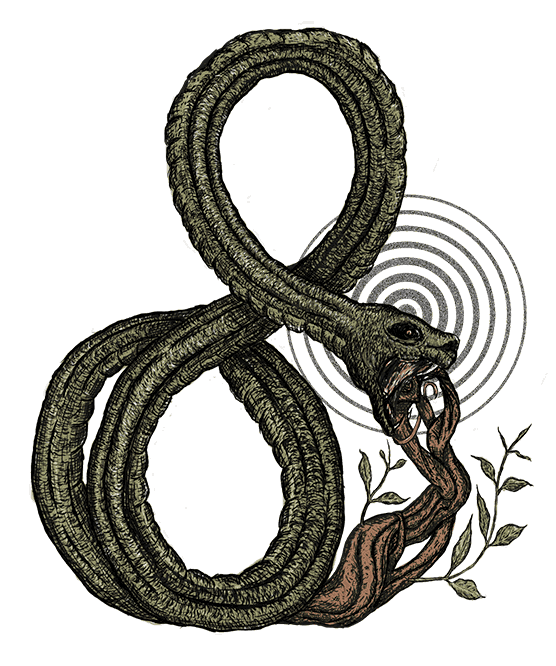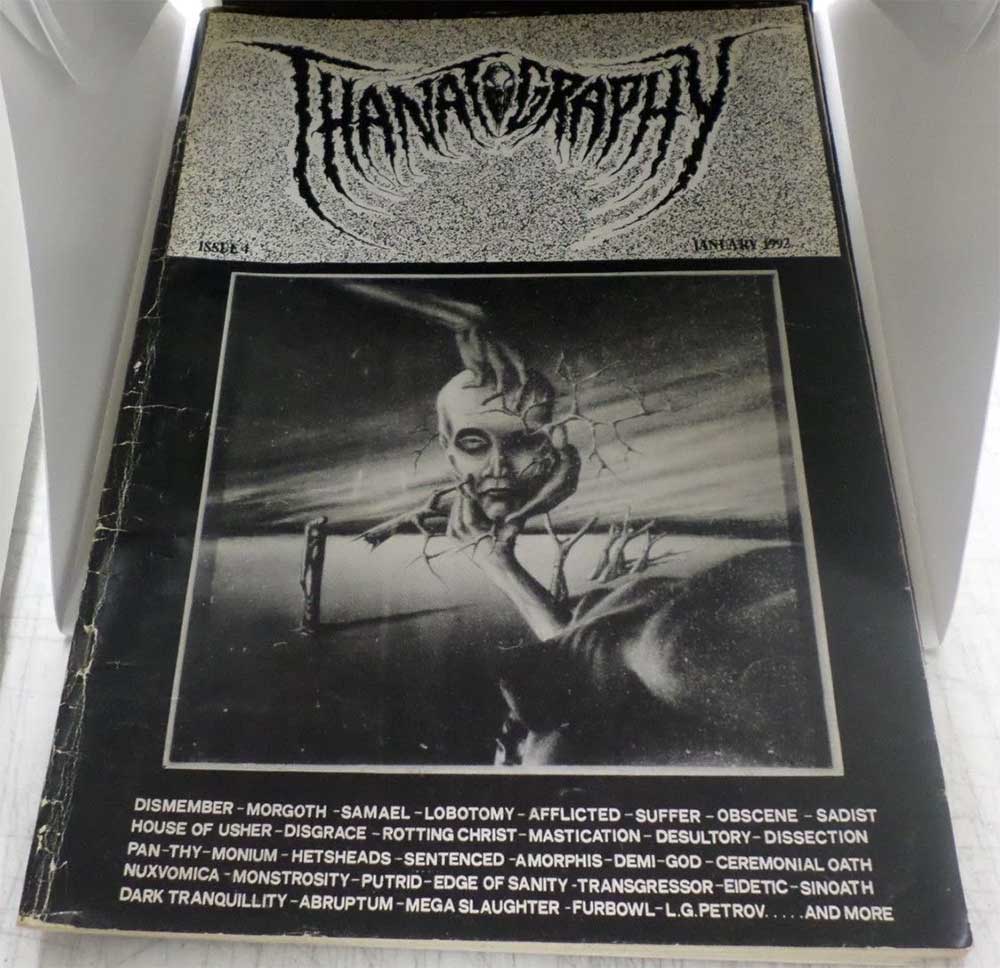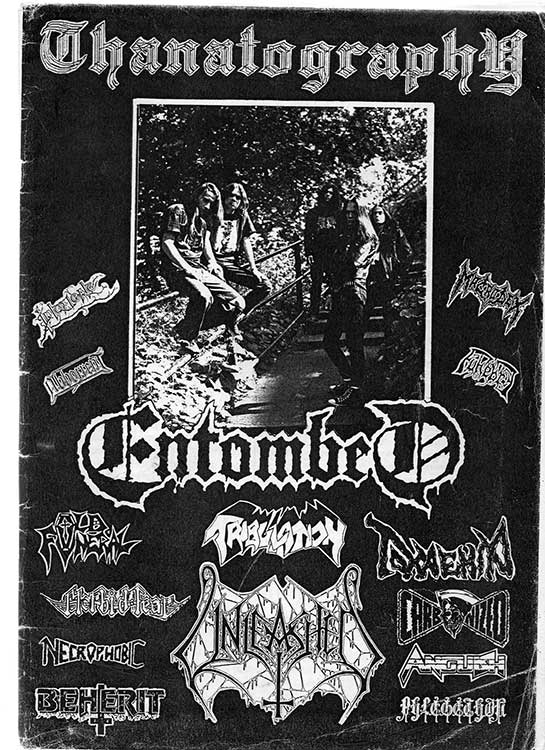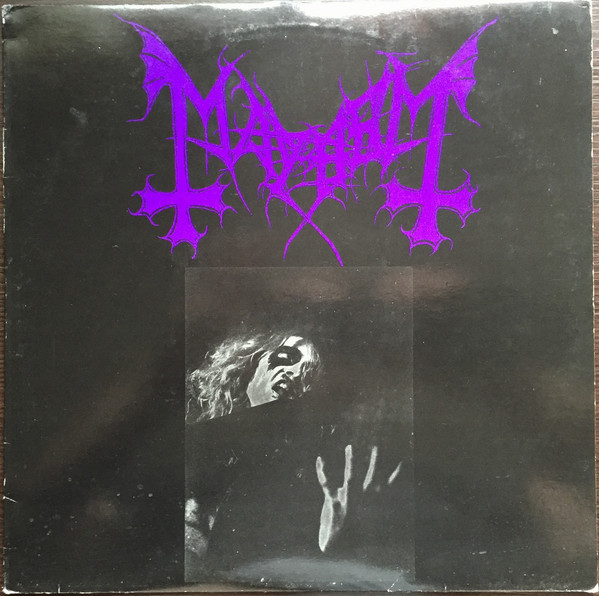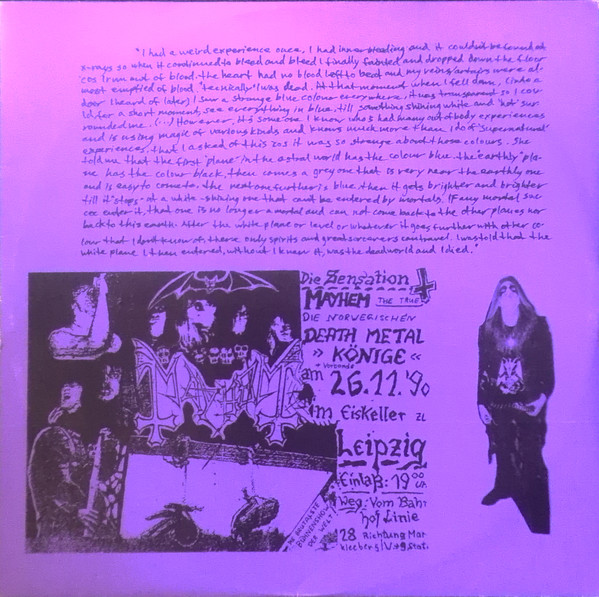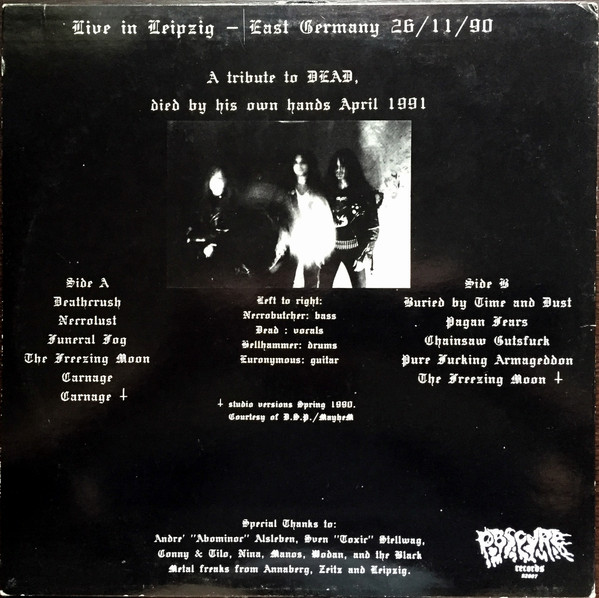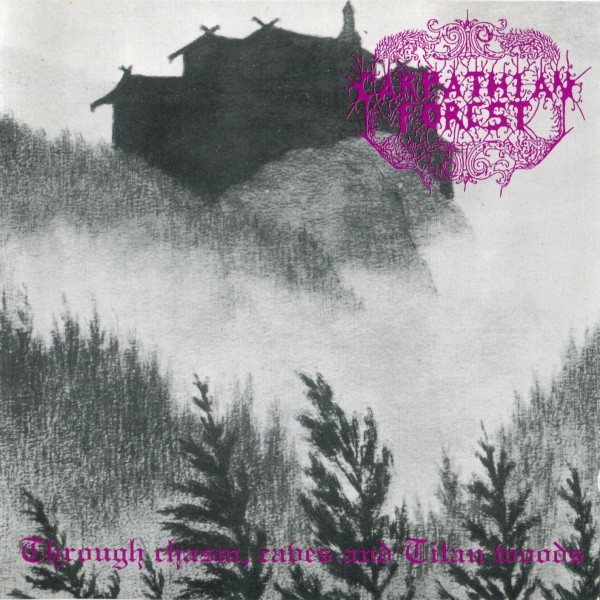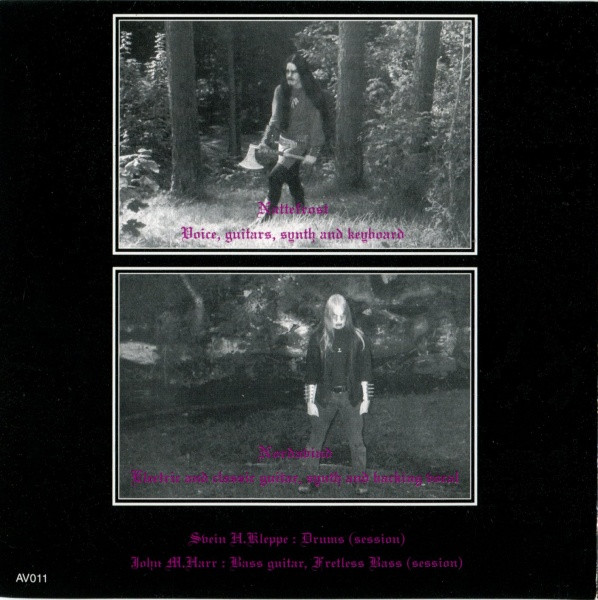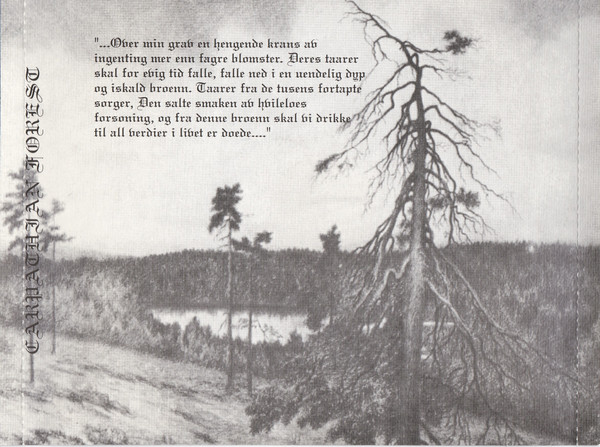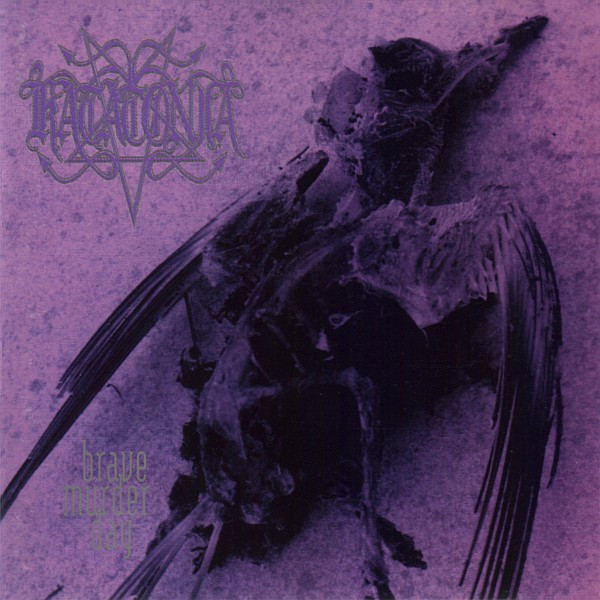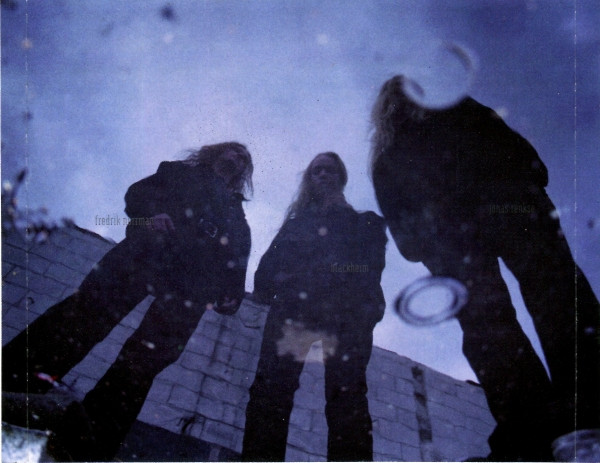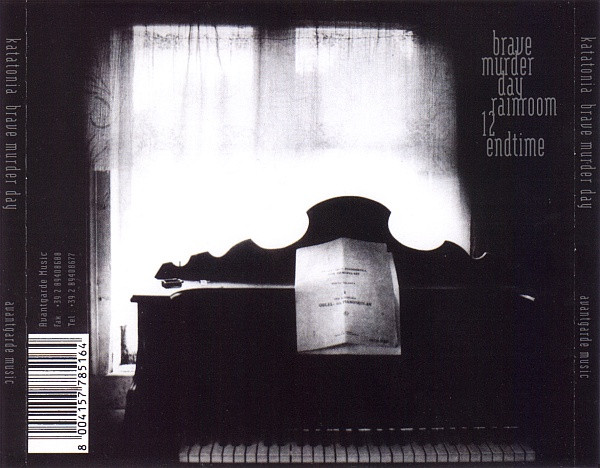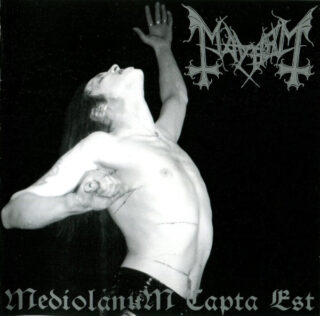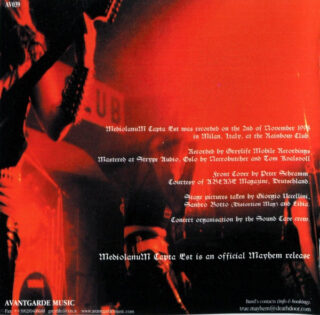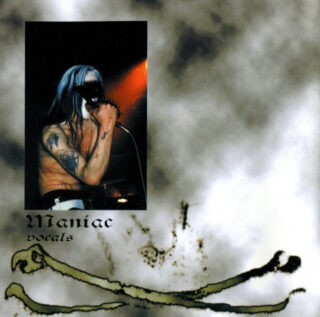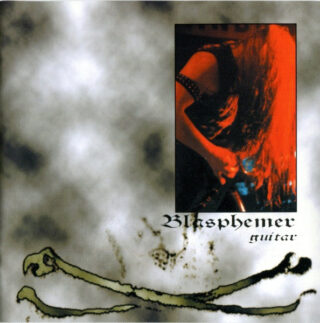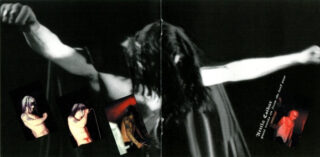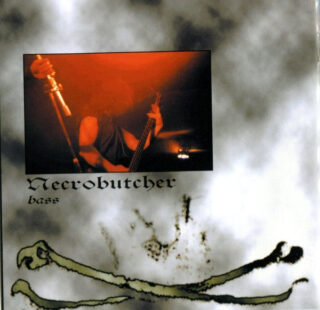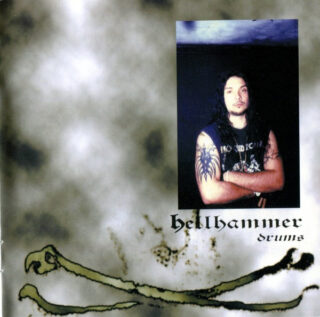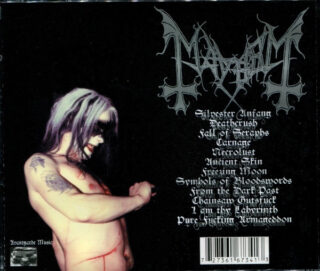Avantgarde Music
2024-02-07
by Niklas Göransson
In Absentia Christi – a conversation with Italian underground stalwart Roberto Mammarella. In 1993, his label Obscure Plasma made black metal history with Mayhem’s Live in Leipzig. Building on this milestone, he went on to create Avantgarde Music.

ROBERTO MAMMARELLA: The days of Obscure Plasma were great! We had lots of fun, but also immediately realised that running a record label is not something you can divide between over three brains. Although we were all fanatics about everything ranging from black and death to thrash and doom metal, you need some sort of uniform identity and common views.
In September 1990, Roberto Mammarella, Valerio Solinas, and Stefano Longhi – three Milanese metalheads who ran a ‘zine called Thanatography – founded the Italian underground label Obscure Plasma.
ROBERTO: The first Obscure Plasma release, in February 1991, was the “Ground Absorbs” EP with Finnish death-thrashers ANGUISH. We also did a seven-inch with SADIST – an Italian death metal band formed from the ashes of NECRODEATH – and then your countrymen HOUSE OF USHER’s “On the Very Verge” EP. I believe we ended up working with all these acts after first approaching them for a feature in Thanatography and then enquiring about collaborating. That was sort of the standard chain of events during this era.
I never read the publication myself, but I asked Timo Ketola of Dauthus about it. ‘If I read Thanatography?’ he responded, ‘It damn-near changed my life. Thanatography #4, spring ’92; this tome of sixty-eight or so pages that I found at House of Kicks was probably the third ‘zine I’d ever seen. Absolutely mental issue. Still to this day, I’ve rarely seen such a stacked line-up. It was groundbreaking because it was so in-depth. Also, as long as the music was good, no bands were too obscure. That’s how I discovered SHUB NIGGURATH and many more.’
ROBERTO: Uh! These words just gave me vibes on my spine; I’m touched to hear this. Thanatography paired dark and deadly sounds with our sarcasm. We never took anyone we reviewed or interviewed too seriously, let alone ourselves. However, there was none of this ‘idiotic fun’ that ruled the scene back then, mainly due to influences from hardcore and crossover.
The second wave of black metal was, in part, a counterreaction to this early 90s marriage between hardcore and death metal and the change of tone brought with it.
ROBERTO: Also, while other underground fanzines begged bands to answer questions about Satan and the Necronomicon, I tried to understand who my interviewees were in real life… their human habits, taste in women, or real jobs. In other words, I wanted to imagine sitting at the dinner table at the Cederlund, Vikernes, or Aarseth family homes – eating together rather than performing black masses.
Timo also told me he once contacted Roberto to ask if there were any back issues of Thanatography available, which was not the case. Apparently, Roberto had thrown all remaining copies in the garbage when moving houses. I take it he’s not a very nostalgic person then.
ROBERTO: Sadly not, and this has been costly in every conceivable aspect. Sentiments, memories, links, regrets, and – can I also mention – money. I often say that I’m a person who could literally pack up and move houses in two hours, using only four moving cartons and two suitcases. I feel no real affection or sense of belonging to material things. In other words: I don’t know the meaning of the word ‘possession’, at least not in the practical terms of life.
Is this from some kind of spiritual conviction?
ROBERTO: Not at all; I am definitely no yogi or ascetic. I’m actually very earthly – but I tend to create, use, and consume whatever the moment provides. The truth is that physical mementoes won’t keep objects, persons, or episodes with us for eternity but rather remind us of what’s been lost forever. So, I prefer to go for a blank sheet instead. But you can’t even imagine how embarrassed and bitter I sometimes feel about creations I can barely remember; things I’d love to hold in my own hands again, if only for an hour.
Roberto is also a musician, with his main project being MONUMENTUM. An extensive conversation about his involvement with this band – and the 90s black metal scene in general – was featured in Bardo Methodology #7.
MONUMENTUM’s 1989 demo, “Musaeum Hermeticum”, caught the attention of MAYHEM guitarist Euronymous, who signed them to his label, Deathlike Silence Productions. Since Euronymous lacked the capital to fund a studio visit, he suggested that Roberto release a live album with MAYHEM and use any revenue for this purpose. So, in July 1993, Obscure Plasma issued its most iconic title: “Live in Leipzig”.
ROBERTO: Suddenly, the MAYHEM live LP rushed onto our heads like a cascade; we were totally unprepared to process hundreds of orders in an organised fashion. Letters containing cash stayed on my table for weeks before I managed to handle them. This was before we used freight couriers – all you could do was visit the post office on a Saturday morning and get cursed by their employees for the unsane load of parcels.
Did you get many complaints from customers?
ROBERTO: Oh yes. Even back then, in times when it was perfectly normal for fans to wait weeks to receive a vinyl or tape, we started getting criticisms by letter. Rumours began circulating about Obscure Plasma being ‘rip-offs’… a classic status back then! But this wasn’t the case at all: we were simply too busy in our daily lives to act fast with the practical side of things, like shipping orders.
Soon after the “Live in Leipzig” experience, Roberto decided to bring his underground activities to the next level and founded a new label: Avantgarde Music.
ROBERTO: I was fed up and physically exhausted from working on a hobby level. I had a day job as a CAD designer, and it was becoming impossible to combine full-time employment with the label, distro, and MONUMENTUM. I felt sick and tired of staying up late writing letters, preparing parcels, and so on. There was no time whatsoever for private life.
1994 was the crossover year; Roberto still worked part-time but also set up Avantgarde Music as an incorporated entity.
ROBERTO: Obscure Plasma Records was put to rest; the team behind it had completely disbanded at that point. Then, at the end of the year, I realised that I earned more money with Avantgarde than my ‘real’ job. So, I had a decision to make: should I keep the label on a part-time basis or give it a try for real? To the horror of my parents, I went all in.
The same year, Avantgarde Music released OPHTHALAMIA’s debut album, “A Journey in Darkness”. The band’s mastermind, the late Tony ‘IT’ Särkkä, was primarily known from ABRUPTUM – a Swedish black metal band signed to Deathlike Silence Production, the same label as MONUMENTUM.
ROBERTO: I think Benny Larsson from PAN.THY.MONIUM sent me their demo; he played drums for OPHTHALAMIA. When I first got in touch with IT, he was truly Euronymous-obsessed – and later, very mad against Varg. I remember Dan Swanö mentioning that it was impossible to record second guitars with this project. IT had this unique style of playing, which made it impossible for him to overdub himself and add dual-layered guitars. In fact, this was a typical Swedish thing around the time, I used to call them ‘singing guitars’; the difference being that IT played at half-speed compared to DISSECTION.
Avantgarde’s fourth release was the CD version of “Live in Leipzig”. Seemingly, everyone I knew bought it – since the vinyl edition was impossible to get hold of – so I imagine the disc version would’ve sold rather well.
ROBERTO: Yes, although you must understand that the circumstances surrounding “Live in Leipzig” made it impossible to build a record company on it. I mean, it’s not like debuting the label with “Storm of the Light’s Bane” (DISSECTION). We were releasing it as some sort of ‘official bootleg’ of a band whose only contacts I had were both dead. MAYHEM didn’t even exist at that very moment. Furthermore, the big distribution companies didn’t want to deal with “Live in Leipzig” due to all the associated controversies. Not to mention that it was a live album recorded with a cassette player.
Another early Avantgarde milestone was CARPATHIAN FOREST’s 1995 EP, “Through Chasm, Caves and Titan Woods”. I will never, for as long as I live, forget the first time I heard that middle section of “The Pale Mist Hovers Towards the Nightly Shores”. Pure black metal magic.
ROBERTO: CARPATHIAN FOREST were a really obscure duo. I only talked on the phone with Nordavind twice, but I got the impression that he was the main composer, although Nattefrost also had his own style back then. Surely, we must acknowledge – and anyone disagreeing must be considered retarded – that they made their best albums with Avantgarde? Period.
After “Strange Old Brew” in 2000, Nordavind left the band. The following year, the new version of CARPATHIAN FOREST released “Morbid Fascination of Death” on Season of Mist.
ROBERTO: After Nordavind was out, we organised a concert in Italy for CARPATHIAN FOREST. Nattefrost had brought in session musicians from IN THE WOODS and GREEN CARNATION. I realised then that Nattefrost was very vulnerable, with personal issues to deal with and get clean of. The band was essentially in the hands of session members.
By 1995, when “Through Chasm, Caves and Titan Woods” came out, Avantgarde Music had also signed KATATONIA and released “For Funerals to Come…” the year prior. Ecstatic that their label had secured them a tour to promote the new EP, both Anders Nyström and Jonas Renkse of KATATONIA dropped out of school. This was rather unfortunate, seeing as how the entire venture ended up being cancelled. As it turned out, the tour’s headliner, UNHOLY, didn’t garner much interest among either fans or promoters.
This debacle almost put an end to KATATONIA as the two members drifted apart. But, come the spring of 1996, Jonas got a call from Anders who announced that he’d quit his job and booked Unisound for July. Thus, KATATONIA rose from the dead. I’m taking the liberty of assuming Roberto was unaware that the boys didn’t have any material written when they entered the studio.
ROBERTO: No, I just paid the bill. Of course, this is something a band should never tell their label. It’s happened in so many cases throughout music history – far more than we know or bands would admit! This is the real talent, I must say; far different from these super-skilled jazz musicians who could improvise drums or guitar performances in any situation but can’t identically replay them. Talented composers are able to write the material before playing it, which is something completely different from an hour’s worth of wanker improvisations.
What were your first impressions of “Brave Murder Day”?
ROBERTO: It was quite different to “For Funerals to Come…”. I’d even say a totally different band than “Dance of December Souls”. Although harsh in some parts, it was very catchy. What I remember is the perception of repetitive songs stretched to over-length – probably because they lacked enough material to fill an entire album. However, disregarding this, it grew on me for each listen. I had an instant feeling that this would be hard to sell due to a completely different sound compared to their past releases, but history paid me back.
Were you surprised that KATATONIA didn’t become bigger earlier on?
ROBERTO: No, because I believe they initially wanted to be a bedroom band only. I mean no offence here at all, but I don’t think Anders or – most of all – Jonas had either the balls or a will to play live back then. Just to tell you what I mean: when we sent KATATONIA out on tour with IN THE WOODS in autumn 1996, Jonas went home after two dates… supposedly for a ‘bad cold’.
In the KATATONIA feature in Bardo Methodology #4, Anders mentioned, ‘Having Jonas bail just a few days into the tour was a real bummer, to say the least. But Avantgarde forbade us to cancel as they’d put in tour support, printed merch, and had bills piling up. We had no choice but to soldier on.’ Consequently, Anders had to assume vocal duties.
ROBERTO: This was back when physical records still sold a lot; musicians of KATATONIA’s size could earn decent money from album sales without having to eat half-frozen backstage pizzas for dinner and sleep on couches all over Europe. That’s why some parallel projects were created around the time – like DIABOLICAL MASQUERADE and OCTOBER TIDE.
During the hiatus, Anders founded a black metal band called DIABOLICAL MASQUERADE. Jonas, on the other hand, played with OCTOBER TIDE; their debut album, “Rain Without End”, sounds far closer to “Dance of December Souls” than “Brave Murder Day” does.
ROBERTO: This situation changed dramatically over the years. Nowadays, many bands – even bigger ones than we’d think – get, as we say in Italy, ‘a handshake’ as their royalty payment. Especially if they had a studio budget for the recording. Meanwhile, they are overpaid to play live. C’mon, it’s even ridiculous at times. I talk with local promoters and hear that even medium-sized bands demand two thousand euros to play a fifty-minute gig! I really wonder how the dynamics of live concerts can go on and for how long.
It should be noted that this conversation took place in early 2020 – in pre-pandemic times when the live situation was a bit different.
ROBERTO: Anyway, back to our beloved Stockholmers. I think, at a certain point, they had to stare in the mirror and decide what they wanted out of this. Obviously, I was very happy for them when they signed to Peaceville – although going with Century Media would probably have made them bigger even earlier. But we’re talking here about a situation that many bands had to face just a few years later.
Can you give an example?
ROBERTO: One that comes to mind, on top of all, is ULVER. I don’t think Garm wanted to take his band on the road, but at a certain point, you must choose between life as a pro musician or simply recording in a home studio after getting back from your ‘normal’ job at the post office.
In June 1999, six years after the “Live in Leipzig” LP, Roberto released another live album with MAYHEM: “Mediolanum Capta Est”. The concert in question was organised by Avantgarde Music in Milan, Italy, in November 1998.
ROBERTO: The MAYHEM guys arrived the day before, and the night started off pretty bad. We waited for them at the airport; they were supposed to have a changeover in Zurich and fly from there to Milan. Then, we got a call from Necrobutcher, who said they’d missed their connecting flight due to bad behaviour on the way over. Apparently, everybody had to report to the Swiss police.
Back then, MAYHEM consisted of Necrobutcher, Hellhammer, Maniac, and Blasphemer.
ROBERTO: Luckily, they managed to board a late-night flight to Milan. When the band finally got here, they were already a bit ‘over the tone’, so to speak. My partner and I really hoped that everyone would just want to head back to their hotel rooms… but no, it was Halloween, and the boys demanded to have some fun.
log in to keep reading
The second half of this article is reserved for subscribers of the Bardo Methodology online archive. To keep reading, sign up or log in below.
